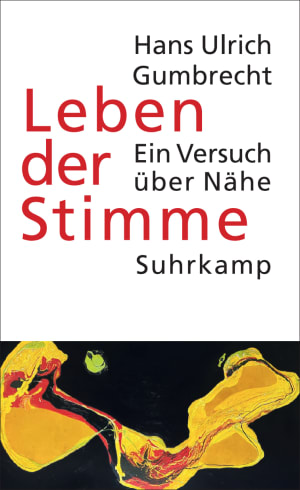English world rights (Standford UP), Spanish world rights (Universidad Iberoamericana), Russia (NLO), Brazilian Portuguese rights (UNESP)
A lively examination of the life and work of one of the great Enlightenment intellectuals
Philosopher and translator, critic and writer, art agent and encyclopaedist: Denis Diderot, born in Champagne in 1713, died in Paris in 1784, was one of the defining figures of the movement that went down in history as the European Age of Enlightenment. But what is the vanishing point of his multifarious œuvre, which is characterised by downright centrifugal dynamics – unlike the works of his contemporaries Voltaire and Rousseau, Schiller, Kant and Hume?
Along scene from Diderot’s...Philosopher and translator, critic and writer, art agent and encyclopaedist: Denis Diderot, born in Champagne in 1713, died in Paris in 1784, was one of the defining figures of the movement that went down in history as the European Age of Enlightenment. But what is the vanishing point of his multifarious œuvre, which is characterised by downright centrifugal dynamics – unlike the works of his contemporaries Voltaire and Rousseau, Schiller, Kant and Hume?
Along scene from Diderot’s eventful and moving life and in precise readings of his key works Hans Ulrich Gumbrecht pursues this question and develops a new approach to this exceptional intellectual in his elegant book. He contrasts this with the system of Hegel, who was both irritated and fascinated by Diderot’s writings and conceptualised them under the term »the prose of the world«. Gumbrecht shows how radically Diderot engaged with the concretenesses and contingencies of the world and thereby reached the centre of an intellectual periphery that also attracted others: Goya, for example, but also Lichtenberg and Mozart. The movements of thought in this periphery reach us today as those of contemporaries.»This book represents a significant contribution by one of the world's leading literary scholars and public intellectuals, whose deep familiarity with the history of ideas and philosophy display a rare ingenuity.« Markus Gabriel, author of Why the World Does Not Exist
»Hans Ulrich Gumbrecht, Literature Professor Emeritus at Stanford University, brings to bear his 50-year intellectual love affair with Diderot to give us this magisterial study.« Dr. Cliff Cunningham, Sun New Austin
»Does Diderot (1713–84) have a particular affinity with the present time? Could the 21st century become, in terms of reception and resonance, the Age of Diderot, as the 19th was the Age of Voltaire and the 20th the Age of Rousseau? These questions drive this ambitious, erudite work by one of today's leading cultural historians and literary critics ... Essential.« CHOICE
»Gumbrecht's readings of these texts are astute, rigorous, and thought-provoking, and resist any straightforward or reductive explanation of Diderot's ideas. ... By turns effortlessly readable and intriguingly opaque, intellectually provocative in its reflections and yet hard to pin down to one thesis, this study encapsulates something of its genial yet complex subject matter in its very approach.« Joseph Harris, Lessing Yearbook
»[…] a good characterisation of Diderot.« Jürgen Kaube, Frankfurter Allgemeine Zeitung
»[...] his book [is] a source of highly interesting suggestions.« Joseph Hanimann, Süddeutsche Zeitung
»Hans Ulrich Gumbrecht shows wherein the fascination with the French thinker and writer lies, particularly today.« René Scheu, Neue Zürcher Zeitung
»Prose of the World illustrates how Diderot didn’t try to reduce the complexity of the world and of reality by forcing it to fit into a system of ›necessary forms of progress‹ – unlike Hegel, who was fascinated by Diderot’s thought and writings, attempted to in his works. For Diderot, the world remains ›overwhelmingly – and at times excitingly – complex‹.« Susanne Kippenberger, Der Tagesspiegel
»This book represents a significant contribution by one of the world's leading literary scholars and public intellectuals, whose deep familiarity with the history of ideas and philosophy display a rare ingenuity.« Markus...
Persons
Hans Ulrich Gumbrecht
Hans Ulrich Gumbrecht was born in 1948. He is a professor emeritus at Stanford University, where he was the Albert Guérard Professor in Literature, is distinguished professor of Romance literatures at Hebrew University, Jerusalem, and distinguished professor emeritus at the University of Bonn. He is a member of the American Academy of Arts and Sciences and has received numerous awards for his work, including the cultural prize of the city of Wurzburg. In addition to numerous visiting professorships, he has received eight honorary doctorates.
Hans Ulrich Gumbrecht was born in 1948. He is a professor emeritus at Stanford University, where he was the Albert Guérard Professor in...
OTHER PUBLICATIONS

Sepp

Lives of the Voice
When it comes to understanding the ontology of individual existence—that is, the everyday behaviors that we all perform and hardly ever think about—the voice has a particularly complicated status....
English world rights (Stanford UP), Spanish world rights (Universidad Iberoamericana), Russia (NLO), Brazilian Portuguese rights (UNESP)

After 1945
The atomic bomb and the Cold War, but also the German currency reform and that country‘s first soccer Wold Championship (called the »Miracle of Bern«); these are the hallmarks of...
English world rights (Stanford UP), Spanish world rights (Universidad Iberoamericana), Russia (NLO), Brazilian Portuguese rights (UNESP), Poland (Krytyka Polityczna)

Our Broad Present
English world rights (Columbia UP), Brazilian Portuguese rights (UNESP), Italy (Bompiani), Turkey (Insan)

In Praise of Athletic Beauty
English world rights (Harvard UP), Spanish world rights (Katz), Chinese simplex rights (Horizon), Italy (Sossella), Netherlands (Arbeiderspers), Korea (Dolbegae), Hungary (Kijárat), Ukraine (Dukh i Litera)
Previously published in the respective language / territory; rights available again: Russia (New Literary Observer), Brazilian Portuguese Rights (Companhia das Letras)
